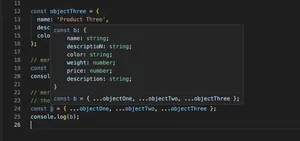Introduction
TypeScript enhances JavaScript by adding types to the language. Booleans are one of the fundamental data types in TypeScript, representing true/false values. This guide will explore how to effectively work with Booleans in TypeScript, diving into syntax, practical examples, and nuances that you need to be aware of when you’re coding.
Understanding Booleans in TypeScript
In TypeScript, the boolean type is used to represent a logical entity that can have two values: true or false. To declare a Boolean variable, you use the boolean keyword like so:
let isActive: boolean = true;
This is an example of type annotation in TypeScript where isActive is explicitly declared as a Boolean.
Boolean Literal Types
Beyond standard Boolean values, TypeScript also provides Boolean literal types. This feature enables you to constrain a Boolean to one specific value, either true or false.
let isTrue: true = true;
let isFalse: false = false;
In these cases, the variable cannot be changed once set. Attempting to assign isTrue the value of false would cause a compile-time error.
Type Inference
TypeScript’s type inference means that you don’t always have to explicitly declare the type when it’s obvious from the context:
let isAvailable = false; // Type inferred as boolean
In this example, the TypeScript compiler understands isAvailable is a Boolean simply because of the false assignment.
Conditional Statements
Booleans frequently control the flow of conditional statements. Here, we use Booleans in some fundamental construct:
let isLoading: boolean = true;
if (isLoading) {
console.log('The application is loading...');
} else {
console.log('The application is ready to use.');
}
This pattern is immensely powerful and occurs throughout TypeScript programs.
Typeguard Functions
A key design goal of TypeScript is to allow you to work with the types of runtime values in a safe way. One way to accomplish this is through type guard functions, which use Boolean return values to refine types:
function isNumber(value: unknown): value is number {
return typeof value === 'number';
}
Here, isNumber acts as a type guard, determining if the passed value is of type number or not.
Boolean Operands and Type Coercion
TypeScript also manages type coercion in logical operands and comparisons. This aspect is inherited from JavaScript but TypeScript adds a level of safety when dealing with potential type coercion issues:
let flag: boolean = !!'truthy'; // 'truthy' string coerced into true
Note the use of double negation (!!) which is a common pattern to cast a value to a Boolean explicitly.
Advanced Boolean Logic
Union types and generically typed boolean handlers allow for advanced patterns in which boolean conditions can be both highly reusable and extremely precise:
function processRequest<T extends boolean>(isSuccessful: T): T extends true ? string : Error {
if (isSuccessful) {
return 'Request succeeded' as T extends true ? string : Error;
} else {
return new Error('Request failed') as T extends true ? string : Error;
}
}
In this example, a generic extends from boolean, allowing the return type to change based on the input.
Best Practices with Booleans
When working with Booleans in TypeScript, aim for clarity. Avoid double negatives and consider refactoring complex conditions into named functions or variables. Always use === for comparisons to avoid unexpected type coercion that may lead to bugs.
Error Handling with Booleans
Sometimes, we use Booleans to handle errors by returning false when an operation fails. Here, we should ideally throw an error or use a more complex error handling pattern like try/catch or error propagation.
Conclusion
TypeScript’s handling of Booleans brings safety and expressiveness to coding logic gates, decisions, and predicates. Its type system lets developers write self-documenting code that, in turn, helps maintain and scale applications effectively. Invest time in mastering the use of Booleans types, and it will greatly benefit the reliability and readability of your TypeScript code.
